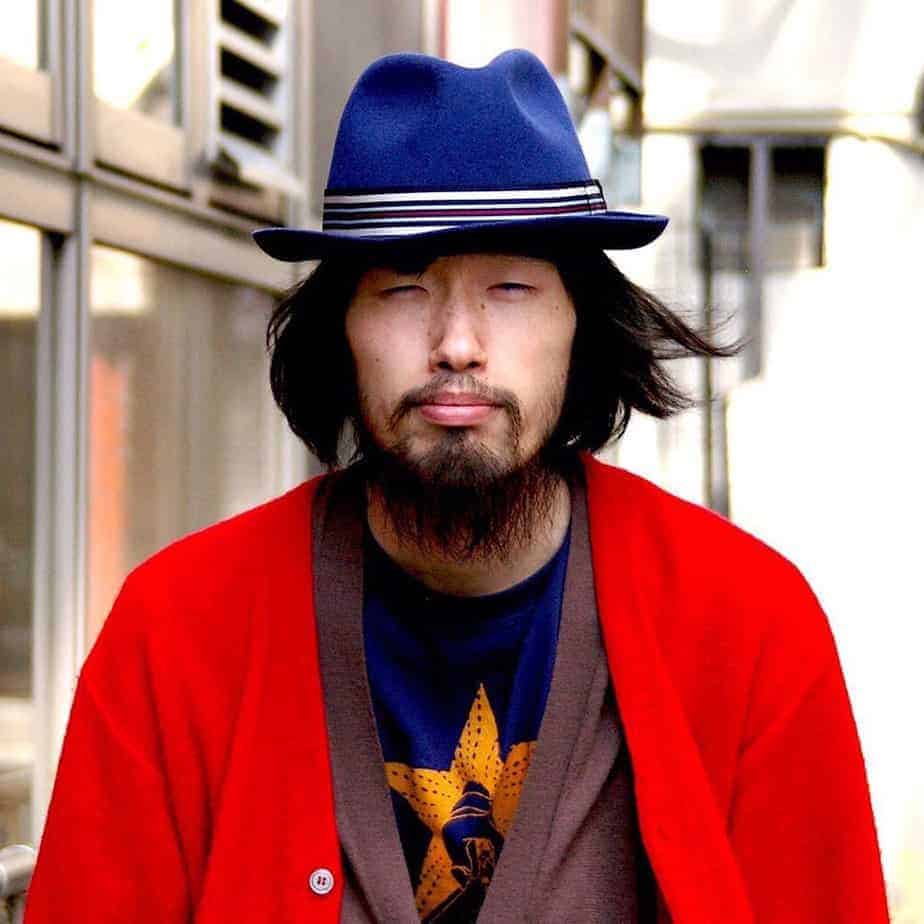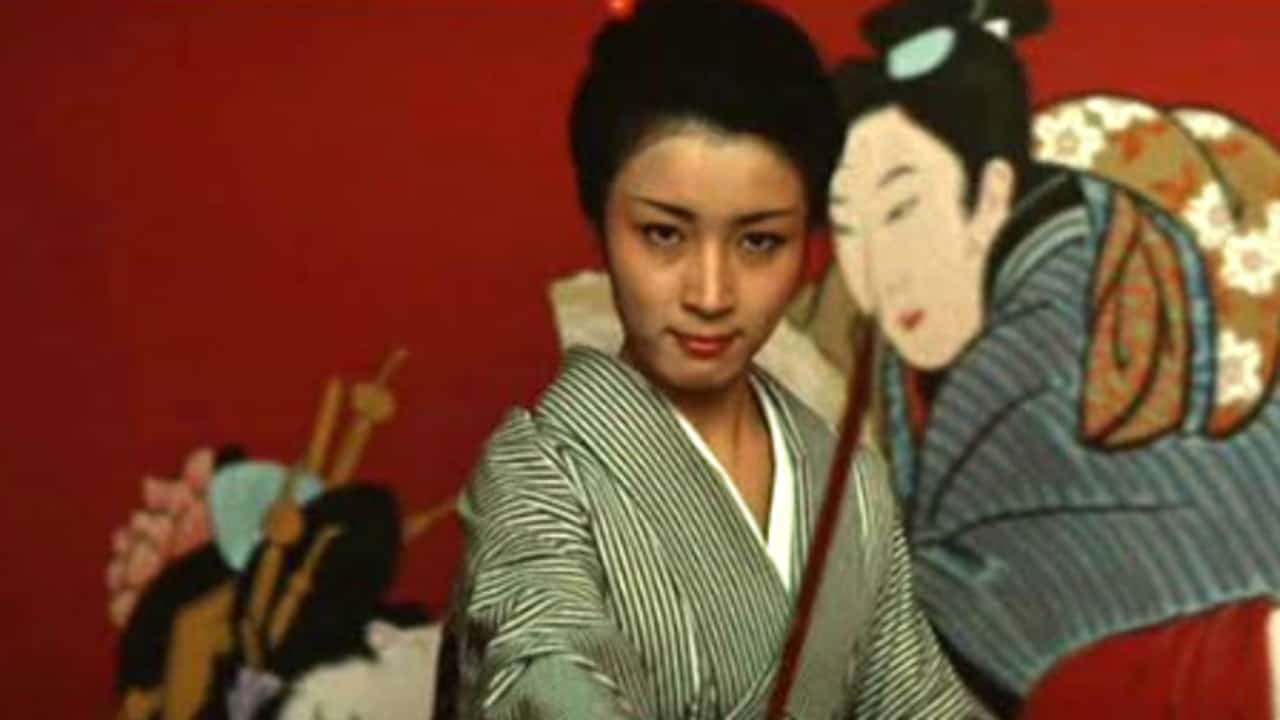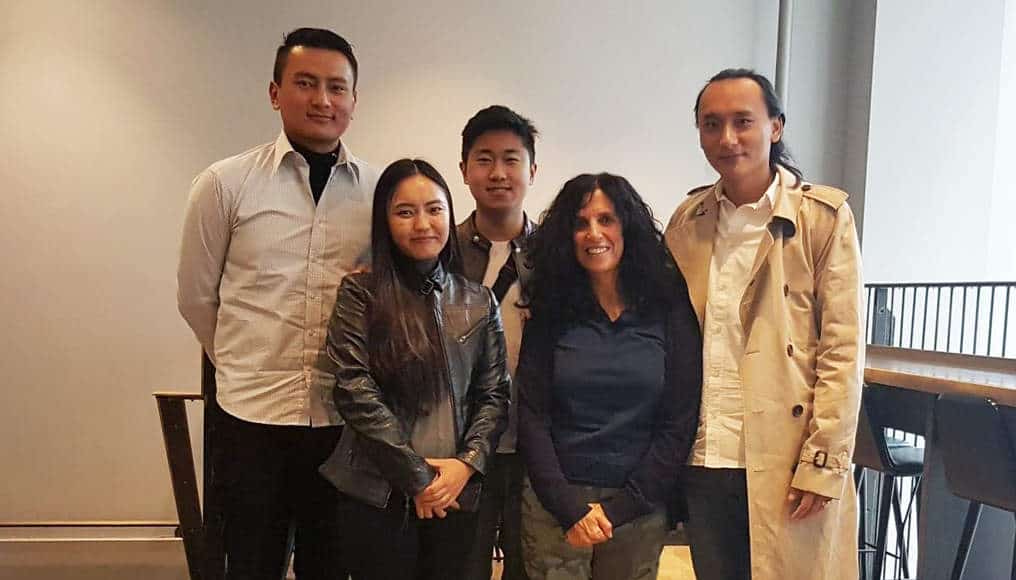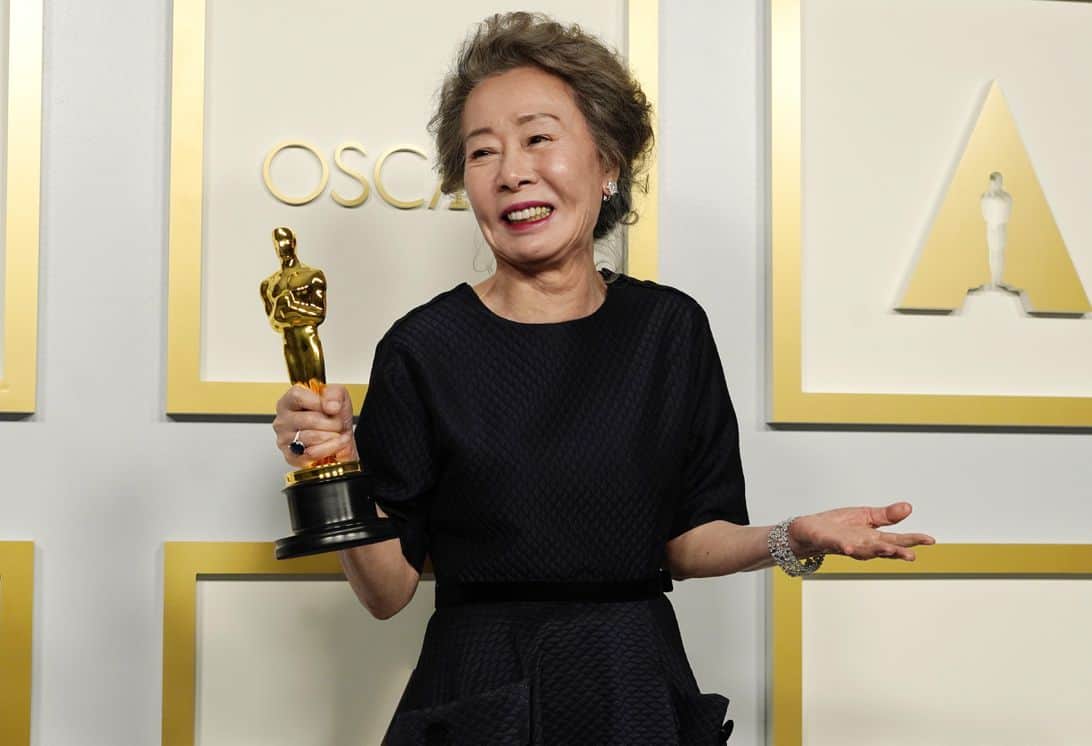Rikiya Imaizumi – born in Fukushima in 1981, Imaizumi made his directional debut with ‘The Movie of Tama' (2010), a music documentary. ‘Catch a Terrible Cat' (2012) was screened at several international film festivals. ‘Sad Tea' (2013), with its complicated love relationships, received much attention. His other feature films include ‘Sister Game' (2014), ‘Their Distance' (2015), ‘Same Old, Same Old' (2016), and ‘Our Blue Moment' (2017). In the interview, Imaizumi continues his eternal pursuit of love.
‘Just Only Love' – based on the novel by Mitsuya Kakuta under the same title. Teruko, a 28-year old working woman, is smitten by Mamoru, devoting her life to him. It is a one-sided love affair, with Mamoru feeling nothing for her. Teruko's love is completely blind, but finally she makes one unexpected decision. The film thoroughly examines the comical and heart-rending nature of one-sided love.
The interview was conducted during the 31st Tokyo International Film Festival. The author wants to express sincere gratitude to the good offices of all the Festival crew.
Japanese people usually don't speak directly about their feelings even when confessing their love. Words for love, such as ai or koi are scarcely used, being eradicated by suki desu (‘I like you'). Do you believe that this ambiguity is still being well protected in Japan?
Absolutely. It's getting even more and more ambiguous. We were having hardships when preparing the English subtitles for the movie and we finally decided not to use simple ‘I like you' or ‘I love you', but such expressions as ‘I'm into you' in order to skillfully translate the ambiguity of Japanese language. In the end, I came into a conclusion that Japanese suki desu is an omnipresent, fixed phrase in Japanese in order to express one's feeling of love.
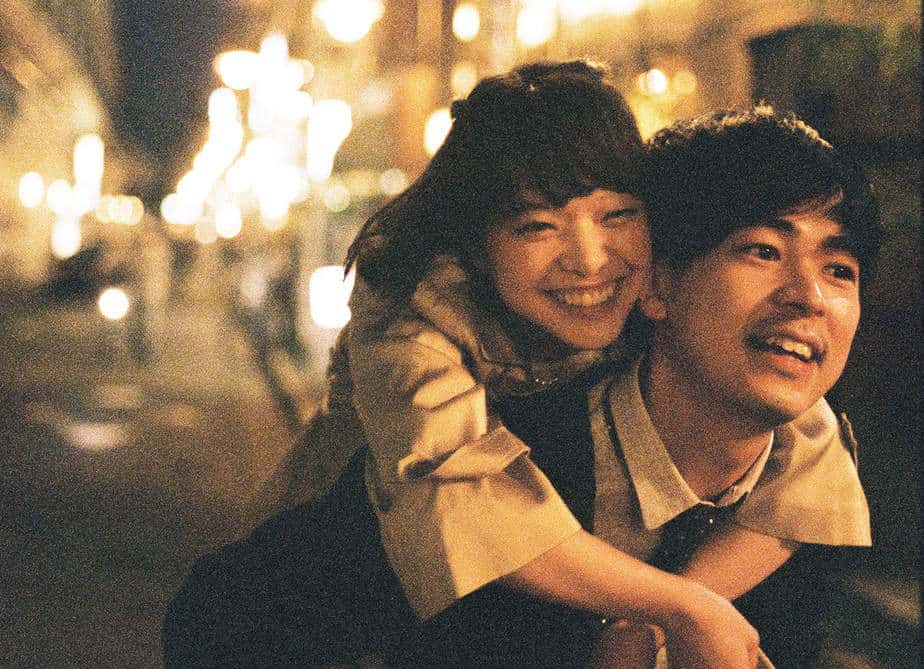
You mentioned that you directed this film feeling jealousy about characters who are madly in love and it made you sensitive about the nature of relationships. After such a thorough study on the essence of love, you surely have conducted while directing the movie, what conclusion have you reached?
Telling the truth, none. I still don't have the answer to what love really is, so I guess there is no other way but to shoot a new movie (laughs). What actually makes me feel jealous is the fact that some people are able to share mutual love and they are able to build strong relationships based on mutual trust.
Do you actually think that there's a thin line between falling in love and falling into madness?
I do, but actually we see less and less people these days in Japan who fall madly in love. It applies to both women and men, but there are actually people who think they don't really need to fall in love in order to marry – they just want to have a baby or simple stability in life. It's a real tragedy, I think.

Japanese love relationships are being considered much more cooler than those in Europe, however upon watching your movie, even a European guy might get a bit jealous when watching a portrait of a warm, tender woman, head over heels in love who takes care about the guy, fulfills his wishes and contacts him every day…
On the contrary, let me ask you a question: wouldn't it be bothersome for you if a girl contacted you every day? (laughs)
Well, I guess it all depends if I'm madly in love (laughs)! Depending on the circumstances, glass can be half full or half empty! Once being in a relationship with self-centered Japanese girl, it gave me a lesson not to fall into stereotypes! So who knows, maybe even I got a little bit jealous after watching your movie?
Ah, I see, I see! (laughs). I guess, I couldn't stand it if a girl called me out notoriously, but I do get your point, naturally!
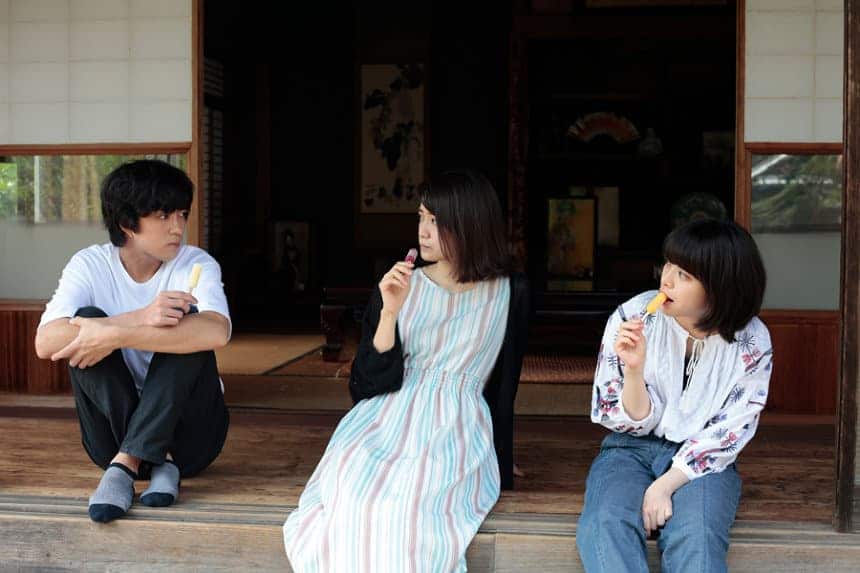
Getting back to the point, don't you think that making mutual compromises and supporting each other equally might be the key to successful relationship, no matter if it's Japan or anywhere else?
Naturally, there are people who base their relationship on mutual help and support, however there are still a lot of people who consider men to have higher position, it is visible especially among older generation. It might also differ depending on the region. For example, I come from Fukushima and my grandma used to shout at grandpa: ‘get out of the kitchen!', being convinced she's the sole one entitled to do the housework. In rural regions of Japan, one might still come across such segregation of duties.
I had the chance to read the novel before watching the film and I must admit that as a European guy, I was extremely mad at the behavior of the male protagonist. I guess in Europe a woman would dump such guy in less than no time or might as well slap him in the face…
Well, in Japan there probably might be quite a few women who would give the guy a solid punch, but that kind of violent solution is still not mainstream in Japan. At the same time, there are women who prefer to be dependent on a guy, fawn over him and let him be in the driving seat.
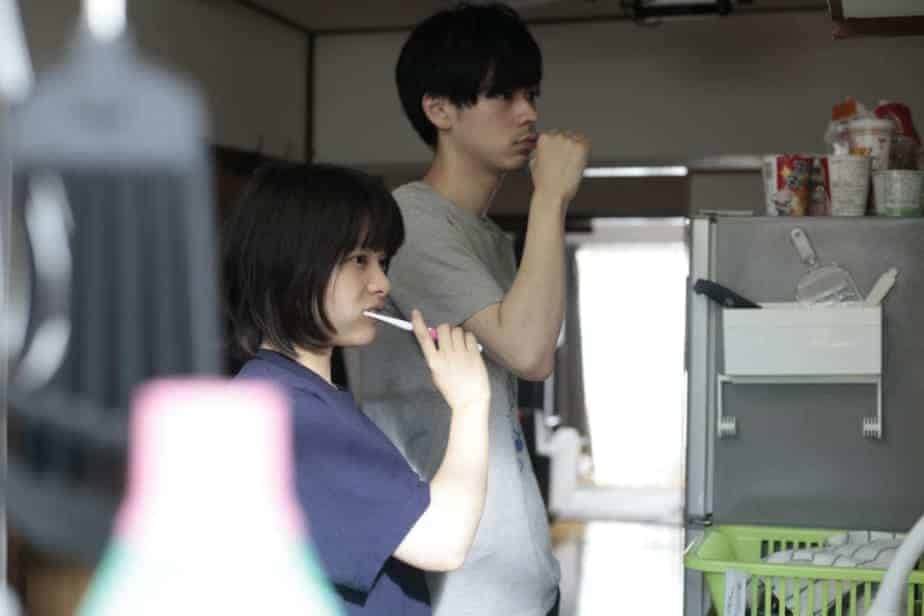
The female protagonist is on the other hand a type who devotes her whole life for the man and is concerned about him all the time. Do you think that she might be a good portrait of a modern Yamatonadeshiko (‘woman who displays the feminine virtues of old Japan')?
Hmm…Well, she also has some weak points: for instance, she absorbs everything like a sponge, being, sometimes in fact, concentrated solely on her own feelings. The relationship of Teruko and Mamoru is being juxtaposed with that of Nakamura and Yoko, but in reversed roles. Love can sometimes take a very specific shape, but I guess that in most cases both partners are well aware of the reason why such distance occurs between them.
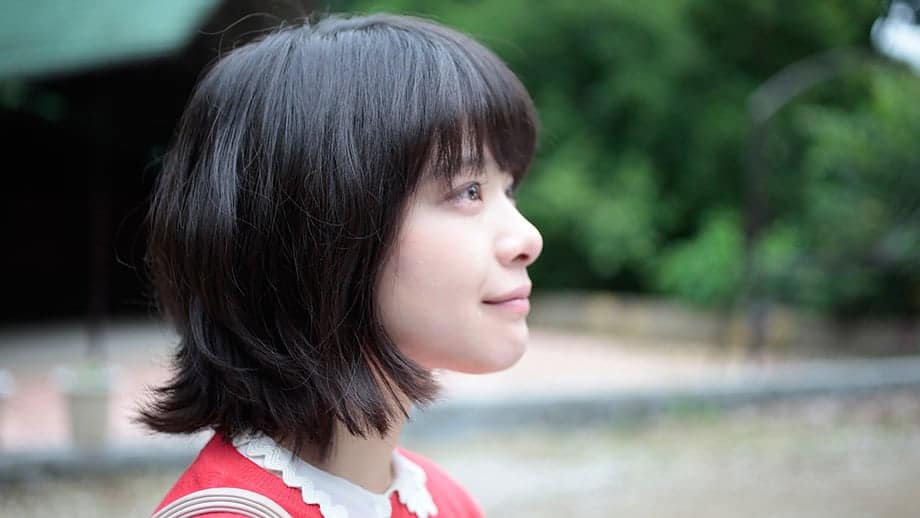
When we look back at the last few decades in Japanese literature or film, we find quite a range of Japanese female portraits. From those women who keep the virtues of old Japan to westernized types, fashionable vixens or even modern hipsters. Do you believe that in nowadays Japan there exists something like a specific view or theory on women?
There is a strong debate on feminism in Japan and '21st Century Girl' that happens to be screened at the Festival, might be a good contemporary example. It is being said that women should become more stronger and push their own opinions. They became stronger not to show off, but to actually mark that they also have a few things to say. Same discussion is being brought up among the LGBT community. It's not about who has lower or higher position, but about mutual acceptance of different views on life. I think that taking proper balance is the key in order to make things smoother.
There is quite an exceptional old Japanese proverb ittou-nihi-sangi-yonshou-gosai (lit. one – to steal [sb's wife], two – maid servant, three – geisha, four – courtesan, five – lawfully-wedded wife), which basically depicts the pyramid of man's earthly desires, where the actual wife is being put off in the very end. How would you comment on it?
I have never heard it before, but somehow I understand the reason why such proverb exists! (laughs)
Which is?
Well, men after all tend to be greedy, they feel joy when being pampered or spoiled. Actually, that also shows an interesting contradiction that women are actually much more stronger than we might think. The fact that men had to be lavishly praised and extoled in the past speaks for itself.
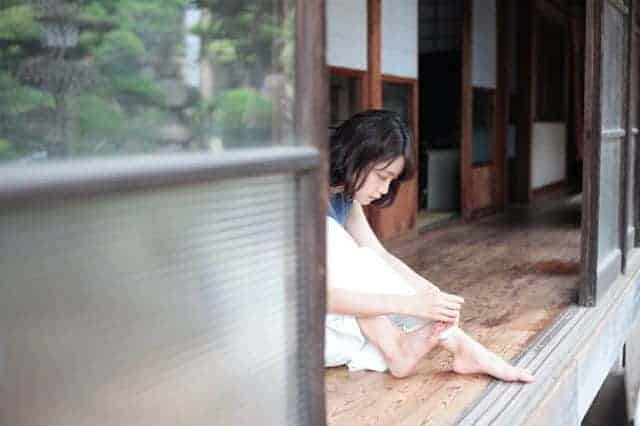
To sum up our insights into what love might actually be, it's based only on my private experience, but I somehow have a strong feeling that it's very difficult to build up male-female relationships in Japan. Even when it comes to simple friendship, there's always some kind of an unspoken undertone in the air, or at least the male side is usually considered to have certain secret intentions. Or perhaps I'm a bit biased?
That's somewhat true. Even friendship between same sexes becomes weaker. Same as Teruko in the movie, in Japan when a woman falls in love in she narrows down her list of female friends in order to have more time for the guy or – on the contrary – other girls draw back from her, knowing she is occupied. For example, when I went to Korea I saw many people sticking very close to each other still being just friends. That strong sense of distance might apply only to Japan. What a waste!
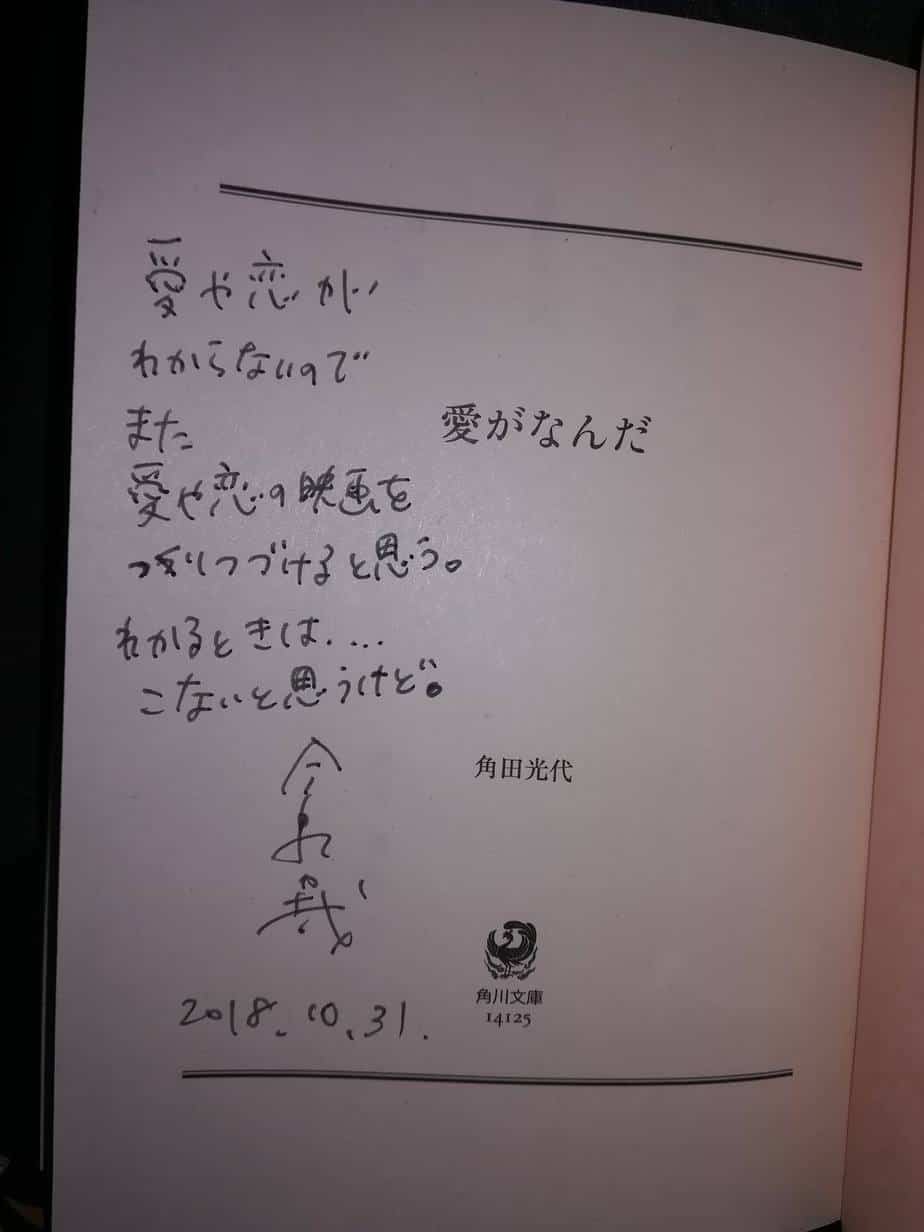
‘I do not know what love actually means, so I want keep on shooting movies about it. However, I am quite sure I will never grasp the answer…' Rikiya Imaizumi.


